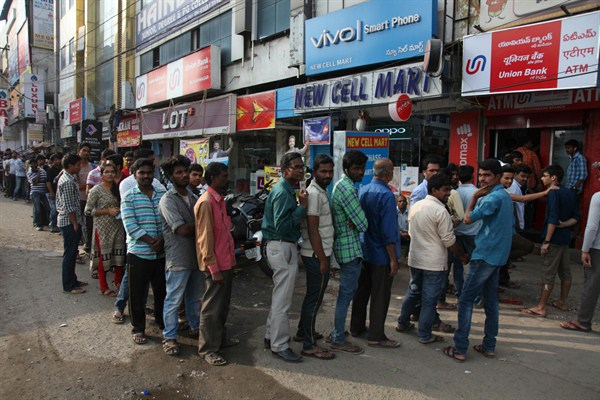On Nov. 8, Indian Prime Minister Narendra Modi announced that 500-rupee and 1,000-rupee notes would be withdrawn from circulation, a move designed to tackle corruption that instead has created chaos and disproportionately affected India’s poor, who depend on the informal economy. In an email interview, Jan Breman, an emeritus professor at the University of Amsterdam, discusses India’s informal economy.
WPR: How large is India’s informal economy, how many people participate in it, and how much tax revenue does the government lose from it?
Jan Breman: The informal economy in India “employs” close to half a billion men, women and children, who together make up more than 90 percent of the country’s total workforce. In the 1970s, the informal sector consisted of people unable to find access to the formal sector, which had regulated terms and conditions of employment that were secured and protected by extensive labor legislation. Intended to be a “waiting room” for land-poor and landless migrants who had become redundant in agriculture, these newcomers to the city lacked the skills and social capital required to qualify for a proper job. After increasing their bargaining power through collective action, these workers, it was hoped, would eventually make their way up from casual and makeshift work and join the formal economy.

